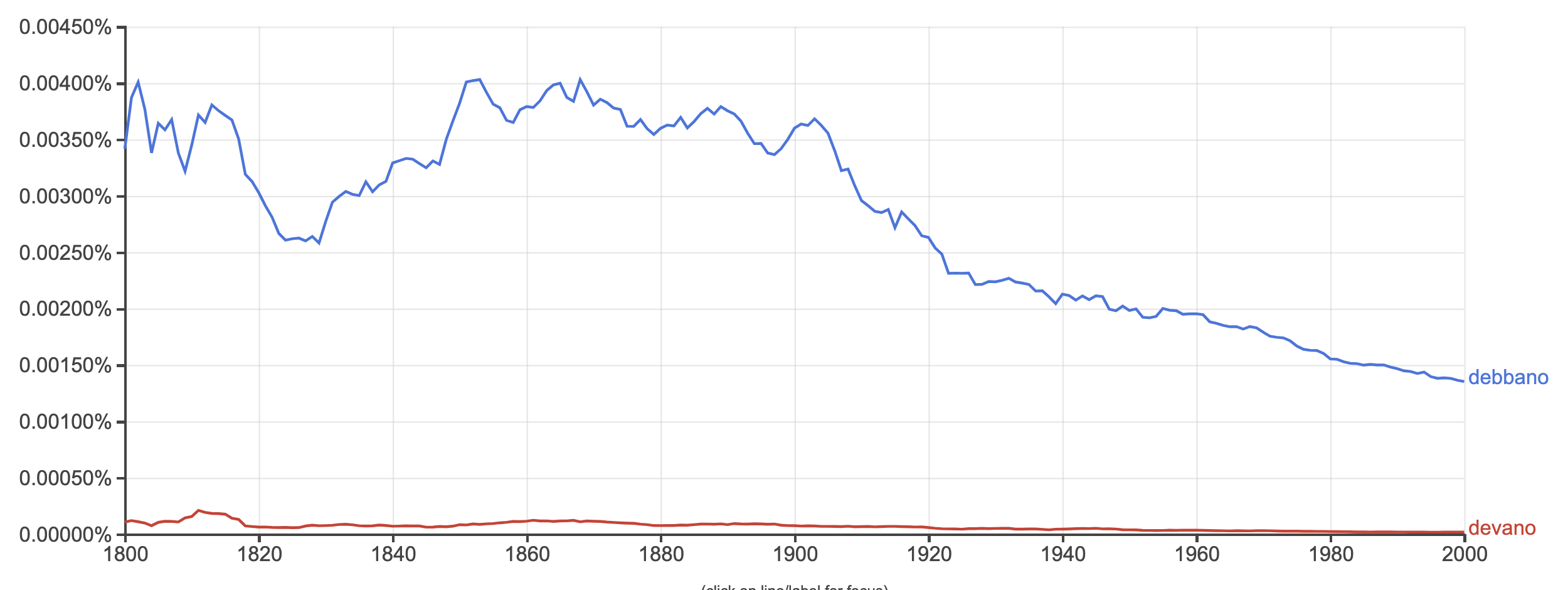In one of my compositions I wrote the following sentence:
Alla fine, lo scrittore dell'articolo crede che il ministero della salute e l'Alfa devano informare i consumatori.
My teacher considered "devano" a mistake and corrected it by using the second form "debbano". Why is it a mistake although both forms are found in my grammar books?
presente (Congiuntivo)
io deva, debba
tu deva, debba
lui, lei, Lei, egli deva, debba
noi dobbiamo
voi dobbiate
loro, Loro, essi devano, debbano
